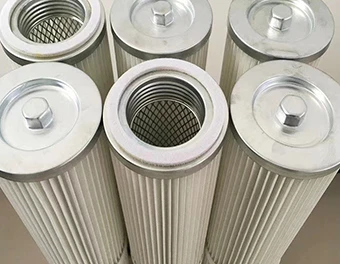 Tel:
+8615930870079
Tel:
+8615930870079
Οκτ . 02, 2024 08:02 Back to list
Effective Pleated Filters for Enhanced Dust Collection Efficiency
Understanding Dust Collector Pleated Filters Key Features and Benefits
In industrial environments, managing airborne dust is crucial not only for maintaining a clean workspace but also for ensuring compliance with health and safety regulations. One of the most effective solutions for dust management is the use of dust collector pleated filters. These filters have become increasingly popular due to their efficiency and performance in a variety of applications.
What is a Pleated Filter?
A pleated filter is designed with a series of folds or pleats that increase its surface area significantly compared to traditional flat filters. This increased surface area allows for more particles to be captured, enhancing the filter’s efficiency. Typically made from synthetic materials like polyester or fiberglass, pleated filters are engineered to trap dust, pollen, and other airborne contaminants effectively.
Key Features of Dust Collector Pleated Filters
1. High Filtration Efficiency One of the primary advantages of pleated filters is their high filtration efficiency. The pleats create multiple layers of filtering surfaces, which allows for the effective capture of both large and small particles. This is particularly important in industries such as food processing, pharmaceuticals, and manufacturing, where dust control is critical.
2. Longer Service Life Pleated filters can often last longer than traditional filters. The increased surface area means that pleated filters can handle a larger volume of dust before needing to be replaced. This not only reduces maintenance frequency but also contributes to lower overall operational costs.
3. Reduced Pressure Drop Pleated filters are designed to minimize airflow resistance, also known as pressure drop. This characteristic allows dust collectors to operate more efficiently, maintaining optimal airflow while capturing dust particles. Lower pressure drop translates to reduced energy consumption, making pleated filters a cost-effective solution for long-term use.
4. Versatility in Applications Dust collector pleated filters can be utilized in various contexts, from small-scale operations to large industrial plants. They can be adapted for use in various dust collector systems, such as baghouses and cartridge filters, making them versatile for diverse applications ranging from woodworking to metal fabrication.
dust collector pleated filter

5. Ease of Installation and Replacement The design of pleated filters makes them easy to install and replace. Most filters come with standardized dimensions that fit into existing dust collection systems without the need for complex modifications. This ease of use contributes to quicker maintenance and reduced downtime, which is essential for maintaining productivity in an industrial setting.
Benefits of Using Dust Collector Pleated Filters
The benefits of incorporating dust collector pleated filters into an industrial dust management system extend beyond just filtration efficiency. Here are some of the significant advantages
- Health and Safety Compliance Effective dust control can help organizations comply with OSHA and other regulatory standards related to air quality. By using pleated filters, businesses can ensure a safer working environment for employees, minimizing the risk of respiratory issues and other health-related concerns.
- Improved Air Quality By efficiently capturing dust and airborne particles, pleated filters contribute to improved indoor air quality. Good air quality is not only vital for employee health but also plays a role in maintaining the integrity of machinery and equipment, reducing wear and tear caused by dust accumulation.
- Cost Savings Although the initial investment in pleated filters may be higher than traditional flat filters, the long-term savings through reduced energy consumption, extended service life, and lower maintenance costs make them a cost-effective choice.
Conclusion
Dust collector pleated filters represent a significant advancement in air filtration technology. Their unique design allows for enhanced filtration efficiency, longer service life, and reduced impact on energy consumption. For industries looking to improve their dust management practices, switching to pleated filters can lead to substantial benefits in health, safety, and operational efficiency. As businesses continue to prioritize workplace safety and environmental responsibility, pleated filters will undoubtedly play a critical role in meeting those objectives.
-
Types and Applications of Air Filtration CartridgesNewsJul.28,2025
-
The Role of Gas Turbine FiltersNewsJul.28,2025
-
Mastering Air Filter Cartridge UseNewsJul.28,2025
-
Advanced Turbine Filters for Modern Gas TurbinesNewsJul.28,2025
-
Cellulose Air Filter Cartridge Advantages in Dust FiltrationNewsJul.28,2025
-
Cellulose Filters for Air Particle ReductionNewsJul.28,2025

 Email:
Email:





